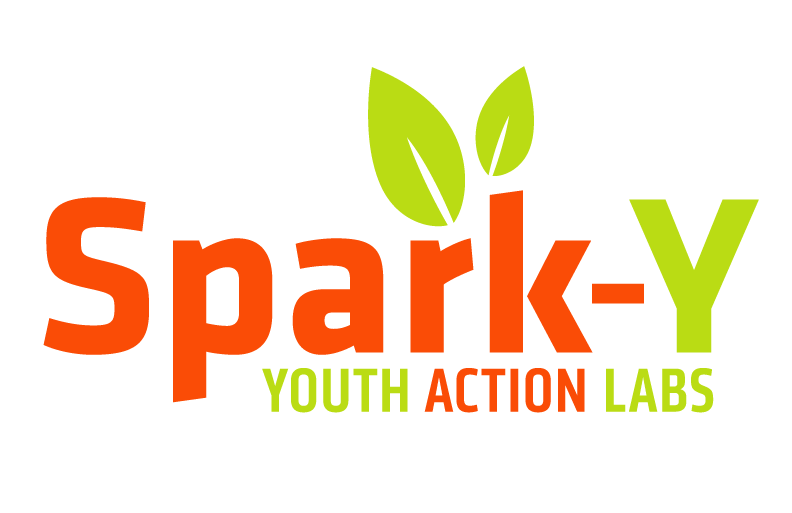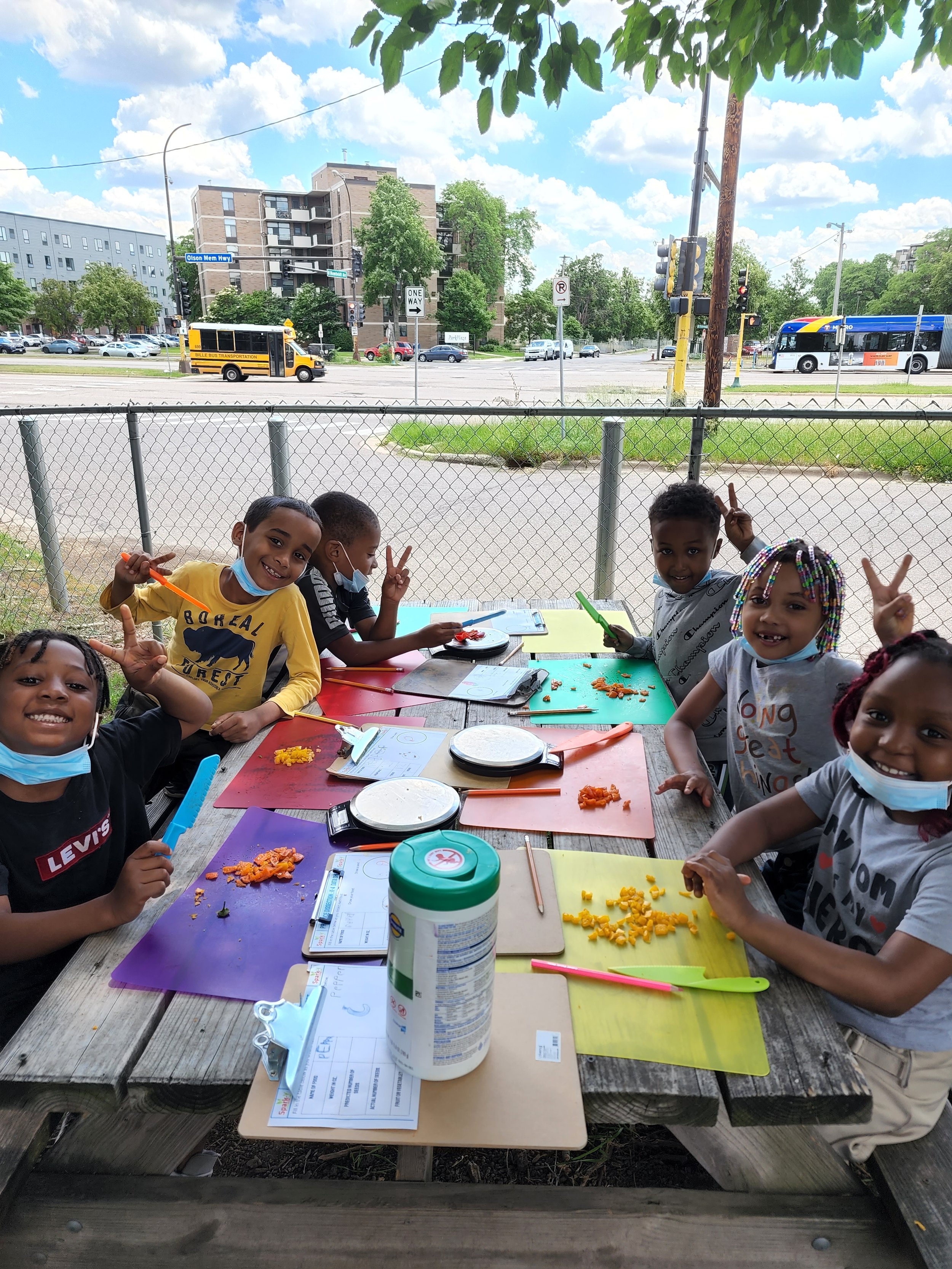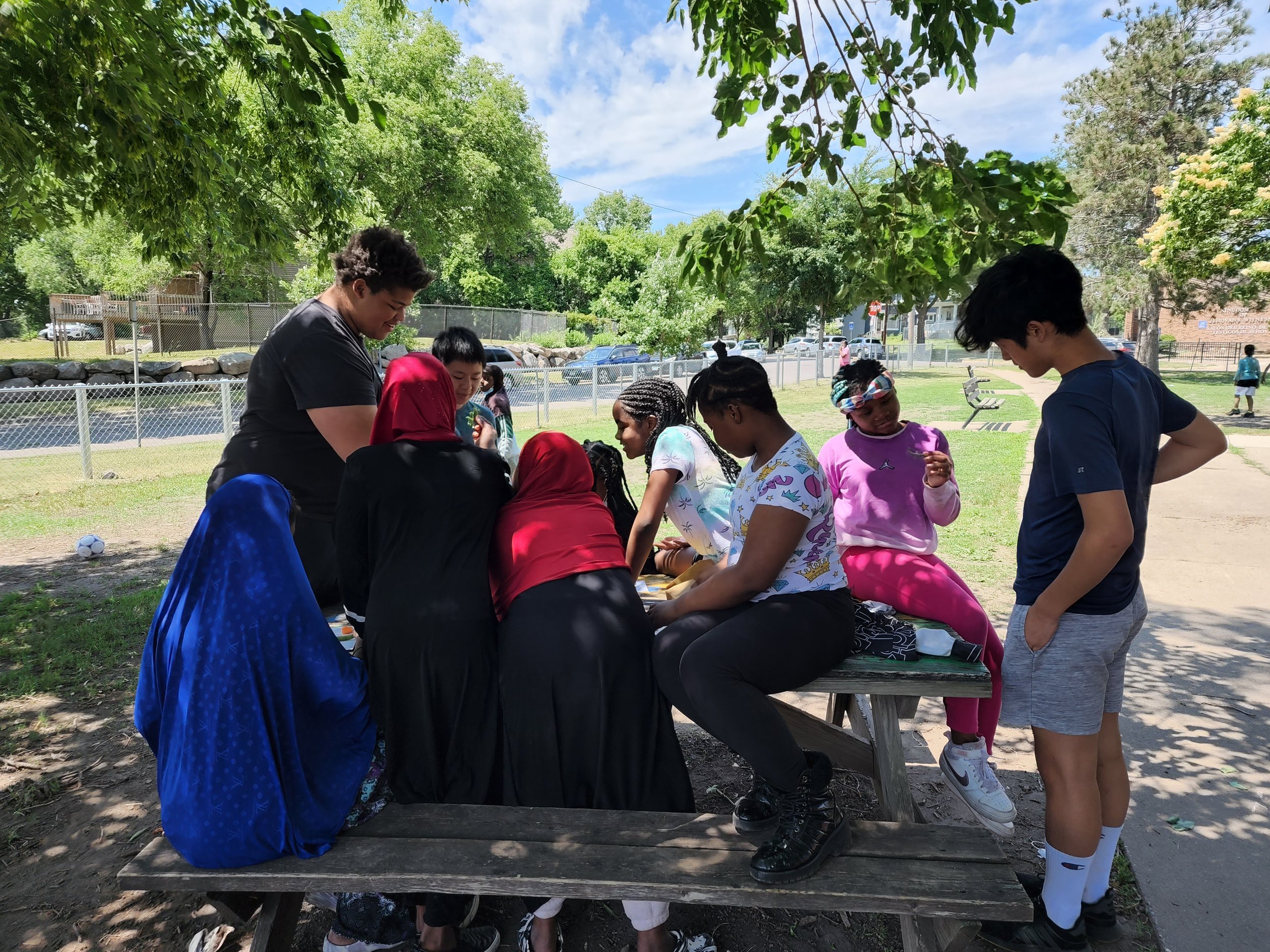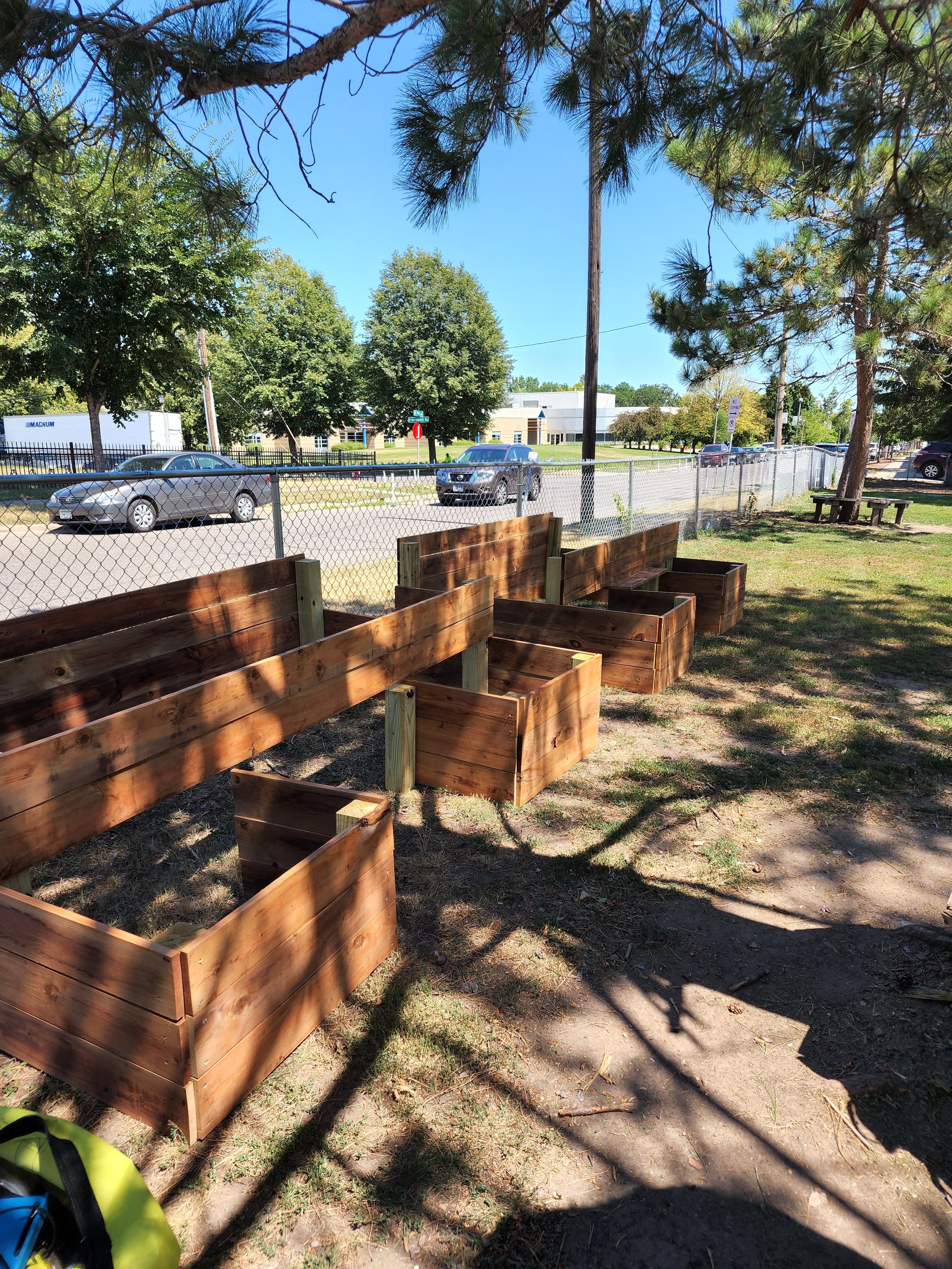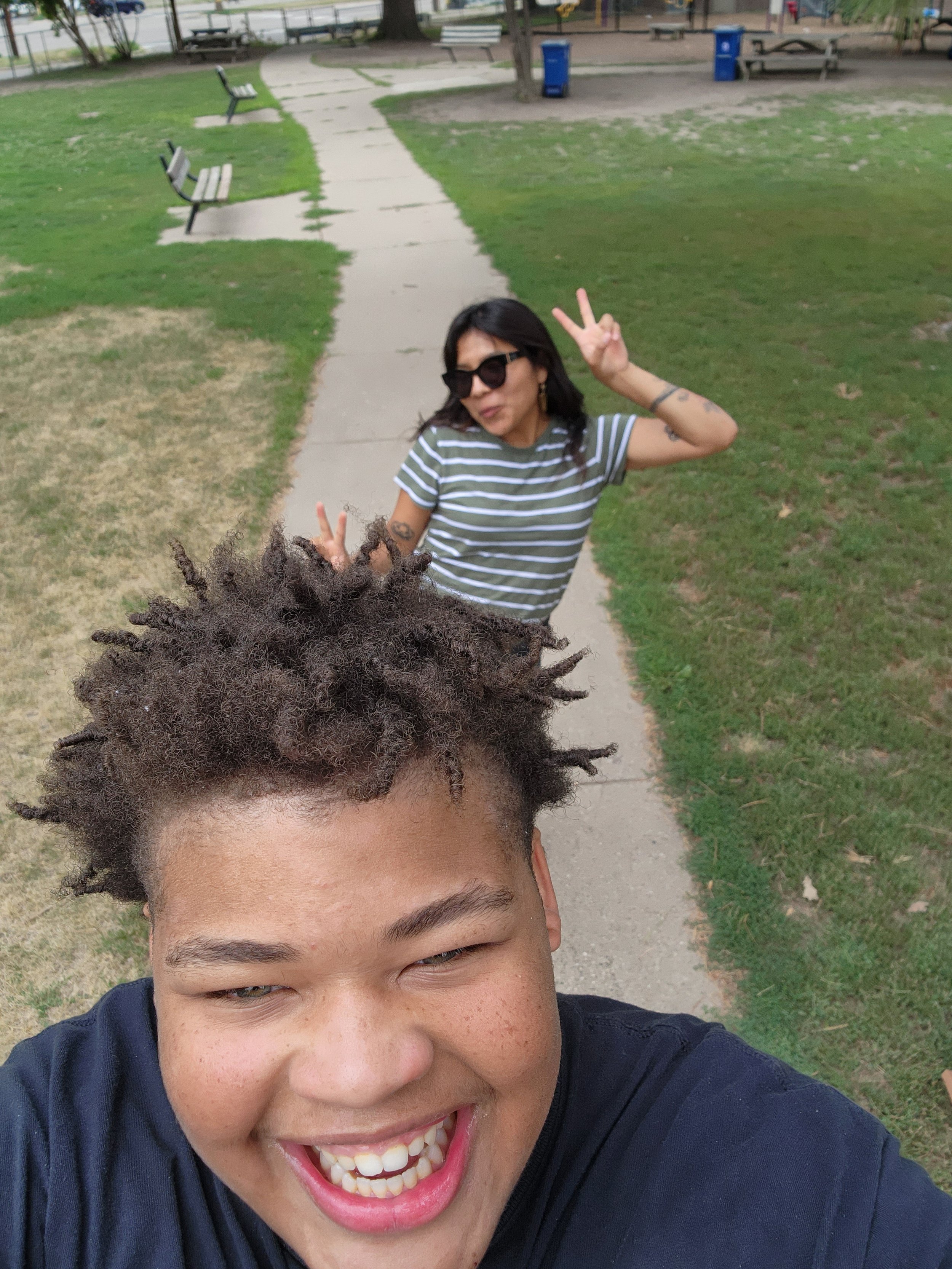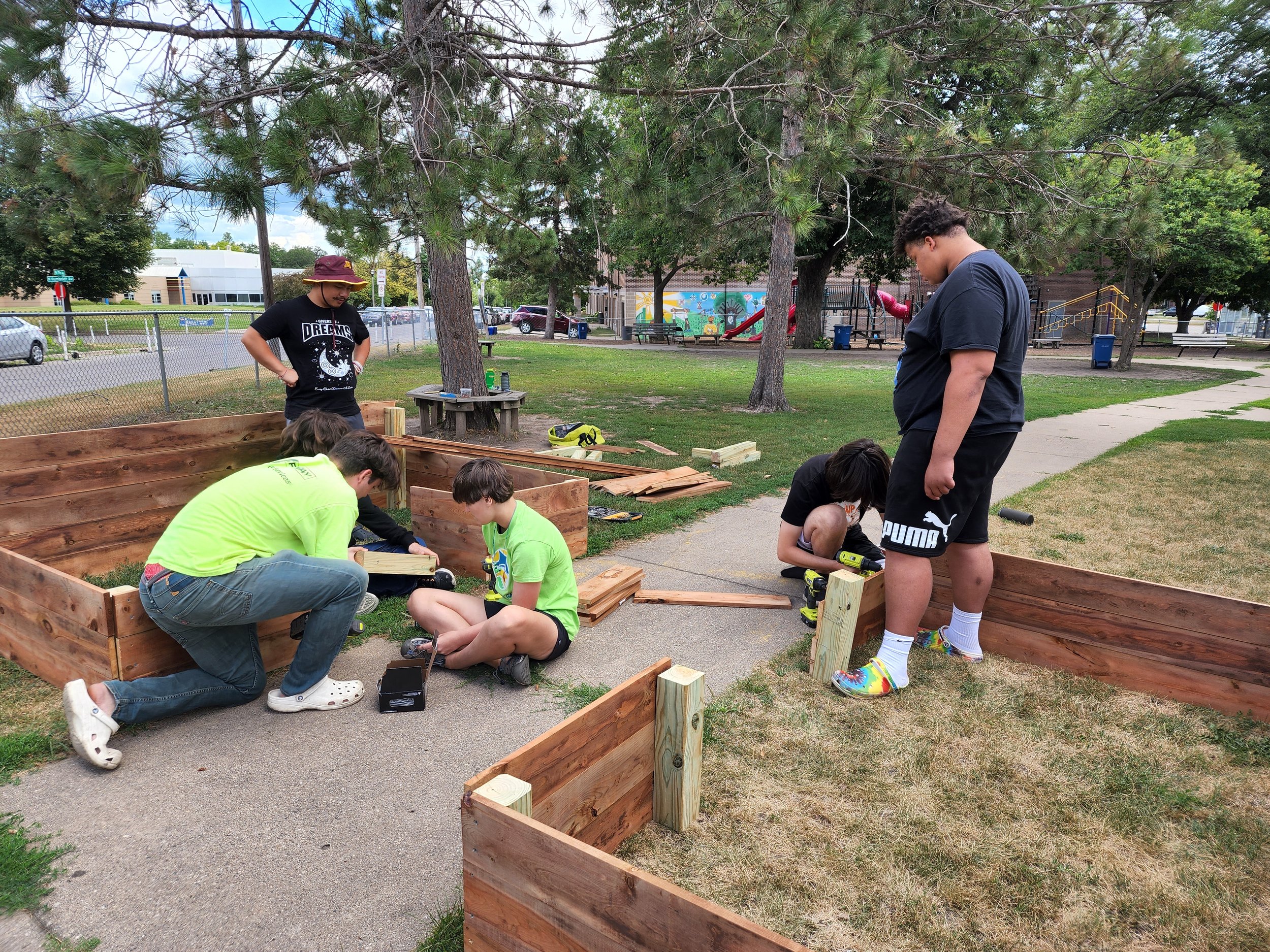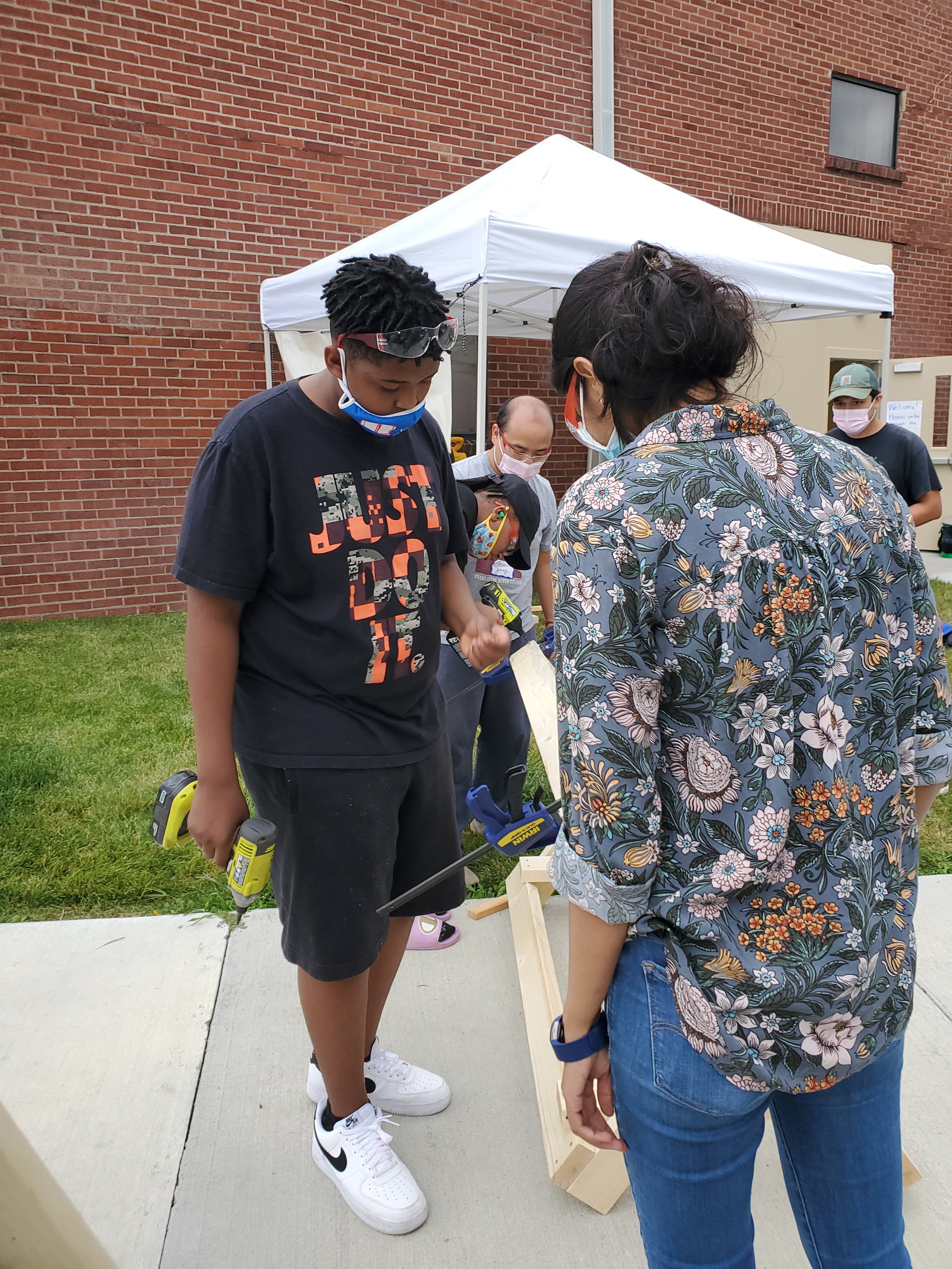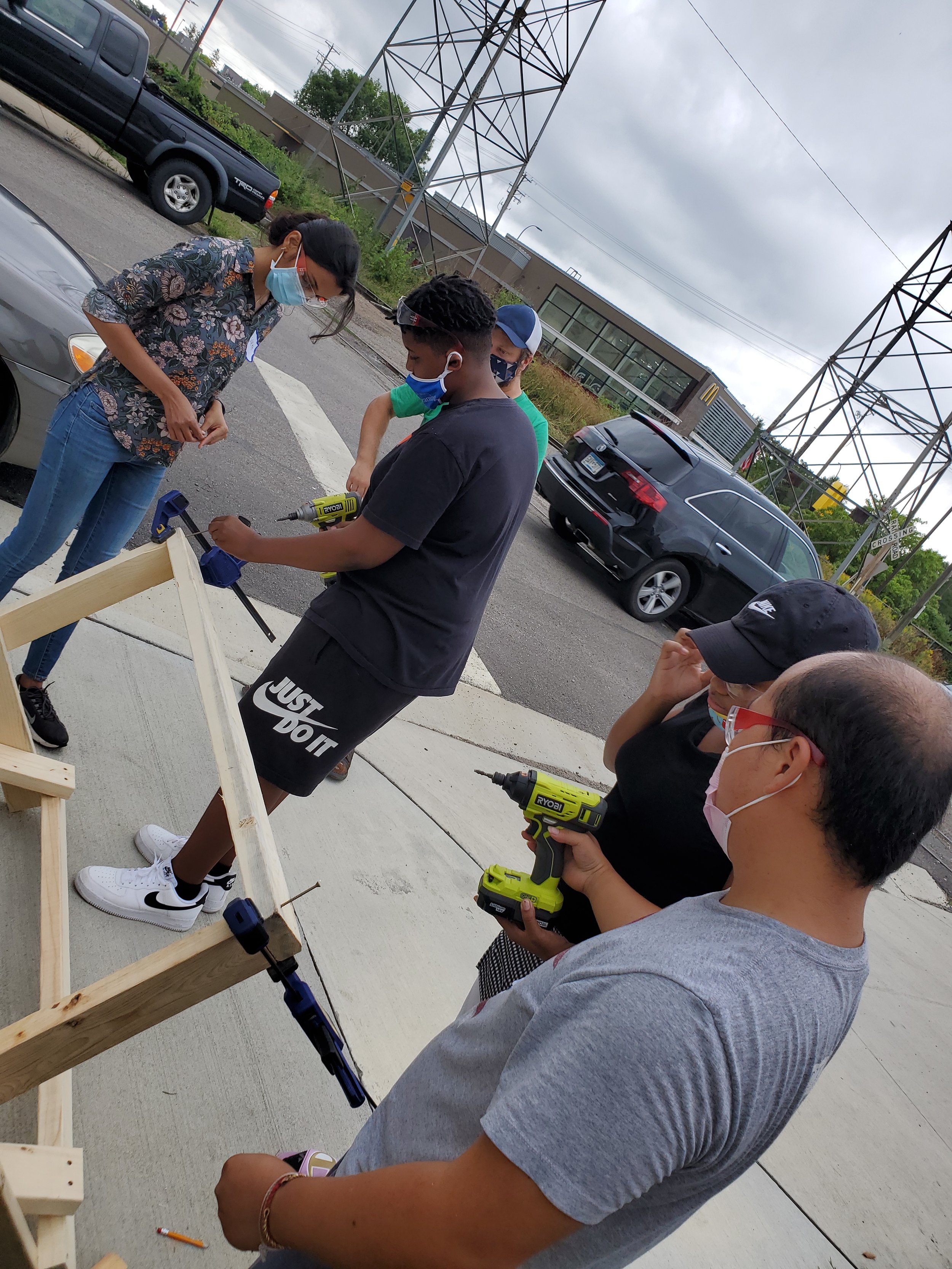Hello Spark-Y Family!
We are the Right Track Summer Internship Team which consists of Jaraide Dassovi (Lead), Navious Bogan, Best Yang, and Eh Ler Vang. This summer our team was responsible for 3 general projects, Harold Mezile YMCA North, STEM Saturday and Harvest Best Academy! Outside of these projects, we’ve had a blast on the field trip to Lake Bde Maka Ska and enhancing our professional development skills in weekly sessions. Meet our team members and the experiences that impacted us most!
Hello my name is Best Yang an intern at Spark-Y that started working this summer.
Here at Spark-Y we work to benefit and help the community so that they can learn about STEM and planting in general. Earlier this summer me and some of my co-workers went to City Hall to plant some flowers at the entrance of the building.
City Hall asked if we could help them by planting some new flowers at the front door of the building. When me and my coworkers were told about the plans to plant flowers at City Hall I was feeling excited to go there because I never went to City Hall in my entire life before until now. When we went to City Hall it was a very hot day out in the sun with little to no shade to hide under. By the end of the day we were all tired being out in the sun and just wanted to go to an area with AC.
This project helps the city in the long run by making sure that pollinators like bees will stick around the area and have pollen and nectar to feed on. I believe that by doing this I can help pollinators by providing pollen and nectar. Something that I learned from this is how to plant flowers because I never planted one before. Also by making pollinator gardens you are providing resources to pollinators which will help them accomplish the great work they do! - Best Yang
Hello my name is Navious Bogan and I'm a summer intern for Spark-Y. During the Bde Maka Ska field trip, I learned how to canoe in under 20 minutes. I faced my fear of being in the middle of a large body of water. In my time while working for Spark-Y I did a wide variety of things, I planted at the City Hall, and maintained the YMCA aquaponics systems this system is located at Harold Mezile North Community YMCA. I cleaned out the system and tested the water to make sure everything was okay. One of my favorite projects was the Cargill project where volunteers help build STEM kits. The STEM kits that were being built were the zombie apocalypse, there used for building vegetables such as Broccoli,Pea, and more. This project was held at Cargill, Inc. in Wayzata, MN.
- Navious bogan
”It was very hot” - Eh Ler
Building Joy
This season Spark-Y reached a more dynamic age range 1st-8th grade. Our summer programming focused on bridging environmental stewardship with a healthy lifestyle. We incorporated this education by engaging the scholars in agricultural practices and lessons on a small scale, such as gardening and understanding the cultural and nutritional value of fresh produce. One of the most popular lessons being produce dissections!
One of the deliverables for the Summer Internship Right Track Team is to design and build a school garden at Harvest Best Academy. We have spent a total of 4 days building this raised bed. Most days were bright and sunny but we did get rained on twice! It has been a joy watching the Right Track Interns learn new, or enhance, their hard skills working with tools such as drills and learning how to assemble a build using a blueprint. As we wrap up this build, we are happy to say the Special Education Department will be utilizing the garden during the 2022-23 school year! Thank you to the Community Education Team Summer Interns and Jordan Bergstrom, Spark-Y Sustainable Systems Manager, for their support and infectious enthusiasm to complete this project! - Grace Cisneros, Sustainability Educator and Right Track Staff Lead.
